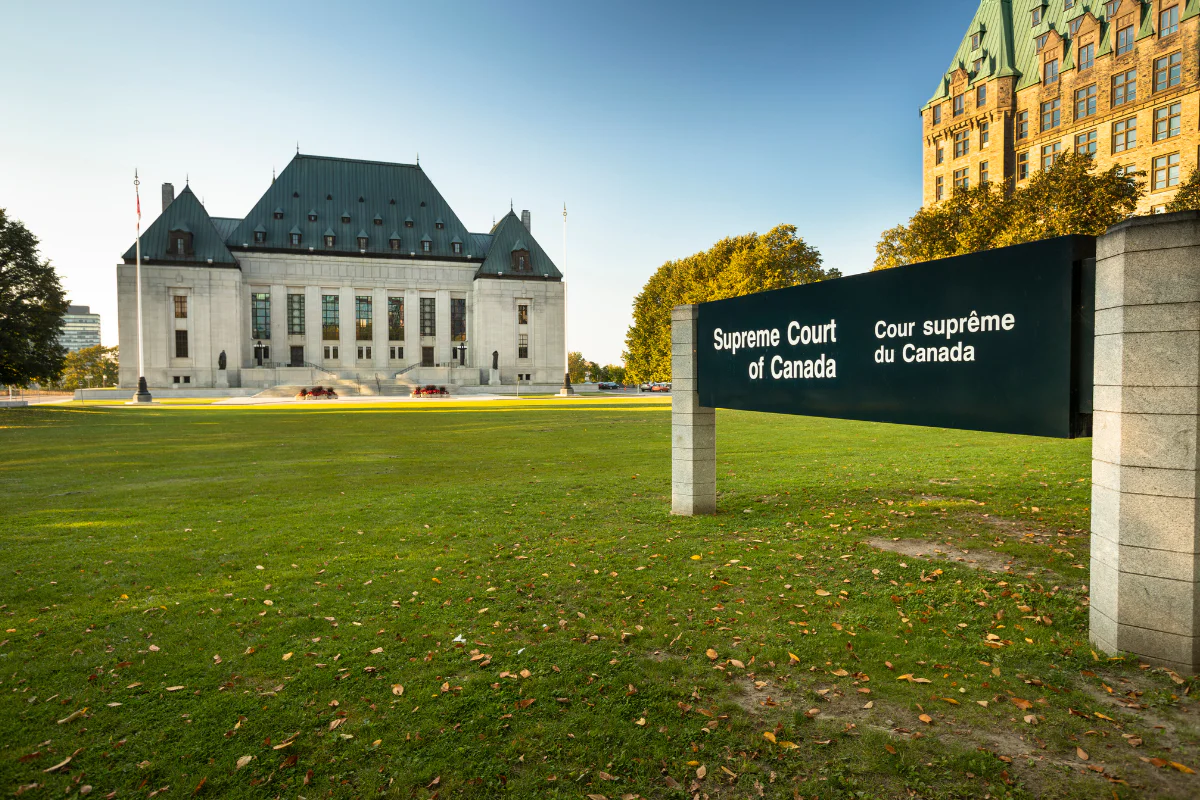Supreme Court of Canada clarifies law on abuse of process & its application to Indigenous litigants

A recent decision of the Supreme Court of Canada summarizes the legal test for the concept of abuse of process and clarifies how that test should be applied in the context of claims by Indigenous litigants.
What is abuse of process?
“Abuse of process” is a flexible and discretionary legal concept. Superior courts such as the Manitoba Court of King’s Bench have the inherent jurisdiction to strike or dismiss legal claims that are abusive of the Court’s process. The concept allows superior courts to prevent a misuse of their proceedings in a way that would be unfair to a party or would bring the administration of the justice system into disrepute.
For example, a party that repeatedly raises the same issue in multiple legal proceedings may be found to have abused the court’s process.
Saskatchewan (Environment) v. Métis Nation – Saskatchewan decision
The recent decision of the Supreme Court of Canada in Saskatchewan (Environment) v. Métis Nation – Saskatchewan, 2025 SCC 4, dealt with three ongoing legal proceedings brought by the Métis Nation of Saskatchewan (the “MNS”):
- In 1994 the MNS started a court action claiming Aboriginal title and harvesting rights to lands in northern Saskatchewan (the “1994 claim”). The 1994 claim had been stayed (paused) until the MNS discloses certain documents and has not been finally determined.
- In 2020 the MNS started a separate action challenging a provincial policy framework for consulting Indigenous peoples (the “2020 claim”). In the 2020 claim, the MNS alleged that the policy framework breached the honour of the Crown and was inconsistent with established case law regarding the duty to consult and accommodate Indigenous peoples.
- In 2021 the MNS applied for judicial review of Saskatchewan’s decision to issue three uranium exploration permits (the “2021 application”). In the 2021 application, the MNS took issue with the consultation process that was followed in respect of the permits. The MNS relied on case law establishing that the duty to consult and accommodate arises where the Crown has knowledge of the potential exercise of an Aboriginal right or title and contemplates conduct that might adversely affect it. In the 2021 application, the MNS alleged that the duty to consult and accommodate had been engaged and that the consultation process with respect to the exploration permits fell short of the standard required.
The Supreme Court made clear that it was not addressing the merits of these proceedings. Rather, it was solely focused on the procedural question of whether the third proceeding constituted an abuse of process.
In response to the 2021 application, Saskatchewan took the position that certain aspects of the 2021 application referencing Aboriginal title and rights were an abuse of process, because they dealt with issues already raised by both the 1994 claim and the 2020 claim.
In 2022, the Saskatchewan Court of King’s Bench accepted this position and struck some paragraphs from the 2021 application. Its decision focused on the overlap between the three proceedings and the Court’s gatekeeping function to prevent a multiplicity of claims.
In 2023, this decision was overturned by a unanimous three member panel of the Saskatchewan Court of Appeal, which emphasized that abuse of process is a “flexible tool” and “employed to prevent the administration of justice from being misused,” which was not an issue engaged by the 2021 application.
Principles for determining abuse of process
Justice Rowe, writing for a unanimous Supreme Court of Canada, dismissed the Saskatchewan’s appeal and upheld the Court of Appeal’s decision. The Supreme Court explained that “the fact that there are two or more ongoing legal proceedings which involve the same, or similar, parties or legal issues, is in itself not sufficient for an abuse of process.” Rather, a court must consider the circumstances of the case – including whether allowing the litigation to proceed would violate the integrity of the adjudicative process or another fundamental principle such as consistency, finality or judicial economy – in order to determine whether there has been an abuse.
Applying these principles to the case before it, the Supreme Court began by characterizing the cases that had been advanced by MNS and distinguishing them. With respect to the (paused) 1994 claim, the Supreme Court cited case law establishing that the duty to consult and accommodate operates even pending a final determination of Aboriginal rights and title claims, and that both sides are governed by a duty of good faith. The 1994 claim was not dispositive of MNS’s asserted title claim – rather, it was just the “legal vehicle” which MNS had selected to vindicate its claim. It did not preclude the MNS from asserting other claims to title and rights.
The Court observed that the 2020 claim focused on Saskatchewan’s duty to consult and accommodate in a general sense, whereas the 2021 application focused on the specific instance of the permits that had been issued. The Court noted that a decision in respect of part of the 2020 claim was pending and would help inform the resolution of the specific questions raised in the 2021 application. It added that any concerns about inconsistent findings between the 2020 action and the 2021 application could be addressed by active case management by the Saskatchewan Court of King’s Bench to ensure efficient use of court resources.
The Court then explained that the fundamental objective of the law governing Aboriginal and treaty rights is reconciliation. In keeping with this objective, at paragraph 62 the Court stated that “Court procedures should facilitate, not impede, the just resolution of Aboriginal claims.”
Overall, the core purpose of the abuse of process doctrine – which is protecting the integrity of the adjudicative function of the courts – would not be called into question by allowing the contested paragraphs of the 2021 application to proceed. To the contrary, striking paragraphs from the 2021 application would shield from review certain actions already taken that might impact MNS’s claimed title and harvesting rights.
Appropriate remedy & unique context for Indigenous litigants
The Supreme Court noted that the remedy in cases of abuse of process is a discretionary decision, meaning that lower courts are generally entitled to deference with respect to their selection of the remedy where an abuse of process has been established.
The Court clarified that the “unique context of litigation to vindicate Aboriginal rights must always be borne in mind” – both when determining whether an abuse of process has been established and, if so, the secondary issue of what is the appropriate remedy. This suggests that Courts should be more reluctant to strike claims by Indigenous litigants on the ground of abuse of process.
The Supreme Court cautioned that a finding of abuse of process is still possible in proceedings involving Indigenous litigants, just as it is for other cases. The Court cited examples of parallel class actions involving the same parties in two different jurisdictions, two duplicative actions with “no viable explanation” for the second action, and cases of “inordinate delay” as a few instances where a multiplicity of proceedings has been found to amount to an abuse of process. The Court noted that where duplicative proceedings would waste the resources of the parties, courts, or witnesses, or risk inconsistent results – and therefore undermine the credibility of the judicial process – then those proceedings may be an abuse of process.
This decision of the Supreme Court is binding upon all other courts in Canada and governs how those courts are to approach the concept of abuse of process. The Supreme Court’s support for active case management by lower courts in order to ensure efficient use of court resources and to avoid conflicting decisions offers a prudent practical path forward in cases where a multiplicity of proceedings cannot be avoided.
Moving forward, the Court’s comments about having to consider the “unique context” of Indigenous litigants in abuse of process cases – including that Court procedures should facilitate the just resolution of claims and advance reconciliation – may help inform how courts approach similar procedural issues.
You may be interested in our upcoming event: Indigenous Leadership & Business: Legal Update 2026 for Saskatchewan
Note: This article is of a general nature only and is not exhaustive of all possible legal rights or remedies. This article is not intended to be relied upon or taken as legal advice or opinion. Readers should consult a legal professional for specific advice in any particular situation.





